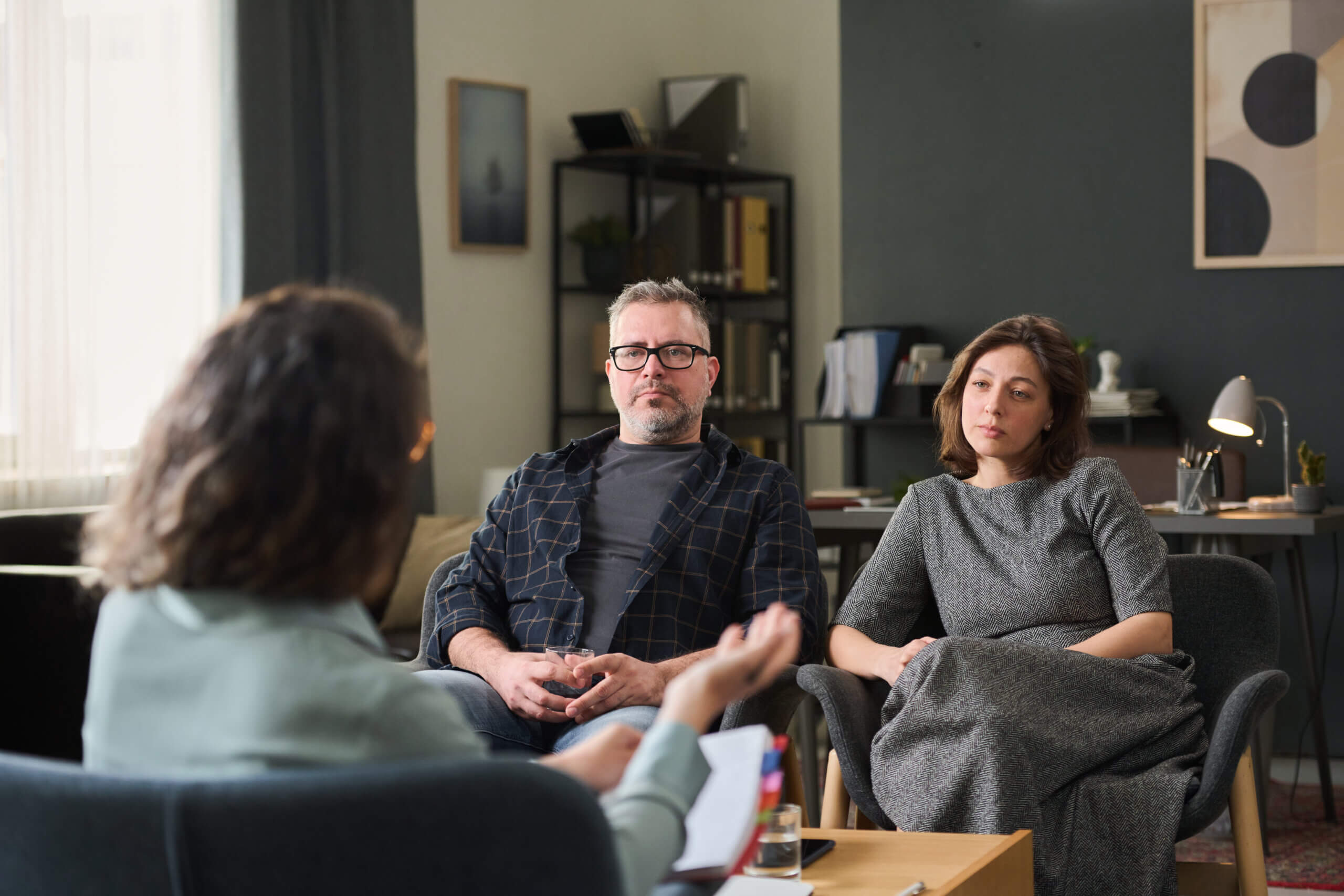Emotional abuse is a deeply harmful experience that undermines intimacy and connection in relationships. It creates a toxic environment filled with manipulative behaviors, defensiveness, and other harmful patterns. Yet, healing is possible. But can counseling help emotional abuse? Counseling can play a crucial role in addressing the damage caused by emotional abuse and restoring healthy dynamics in relationships. Let’s explore how counseling can help, the necessary steps involved, and the key principles that guide this process.
The Impact of Emotional Abuse on Intimacy and Connection
Intimacy and connection are the cornerstones of healthy relationships. They thrive on trust, mutual respect, and open communication. However, emotional abuse disrupts these dynamics by introducing “crazy-making” behaviors that hinder connection.
Crazy-Making Behaviors
Crazy-making behaviors refer to self-protective strategies that create confusion and harm rather than resolving issues. These behaviors include:
- Denial: Refusing to acknowledge problems.
- Minimization: Downplaying the severity of actions or their impact.
- Rationalization: Justifying harmful behaviors.
- Blame-Shifting: Redirecting accountability onto others.
- Playing the Victim: Manipulating situations to avoid responsibility.
Such aversive strategies also manifest as:
- Pouting or withdrawing: Avoiding communication to exert control.
- Powering over: Dominating conversations or decisions.
When these patterns dominate, intimacy and connection cannot occur. They block healthy interactions and create a cycle of emotional distance and pain.
Healthy Relationships Accept Influence
It is very important to accept influence in relationships. This means being open to your partner’s concerns and emotions. For example, when a partner says, “I have a concern,” a healthy response would be, “Tell me more; I want to understand.”
The opposite of accepting influence is defensiveness—one of the hallmarks of emotional abuse. Defensiveness, combined with other aversive strategies, creates a barrier to intimacy and mutual respect.
Counseling as a Path to Healing
When emotional abuse has significantly damaged a relationship, counseling can be a transformative tool. However, it requires careful timing, the right approach, and a skilled clinician.
Individual Work Comes First
Before couples counseling can be effective, the abusive individual must address their behaviors independently. In many cases, this involves deep introspection and therapy to identify and reduce destructive patterns.
For instance, men, who often represent the majority of emotionally abusive individuals, may need to work through pervasive issues such as:
- Profound emotional immaturity.
- Patterns of dominance and arrogance.
- Chronic defensiveness.
At specialized centers, programs like three-tiered counseling for men help individuals confront these patterns and develop healthier ways of relating to others.
When Couples Counseling Can Begin
Once the abusive behaviors have been minimized or eliminated, couples counseling can begin. At this stage, both partners work together to rebuild their relationship. Dr. Hawkins outlines a method known as “ART” to guide this process:
1. Appreciation
Reintroducing ways to genuinely appreciate one another is a critical first step. After emotional abuse, both partners often feel devalued. Counseling helps them rediscover and express gratitude for each other’s qualities and contributions.
2. Respect
Respect is essential for any relationship to thrive. Counseling focuses on rebuilding mutual respect by fostering empathy and understanding. Partners learn to listen actively, validate each other’s feelings, and avoid past patterns of disregard.
3. Trust
Rebuilding trust is the most challenging aspect. Trust requires consistent actions over time to demonstrate reliability and emotional safety. Counseling provides tools to help both partners navigate this process and support each other’s healing.
Challenges in Counseling for Emotional Abuse
Addressing emotional abuse in counseling is not a simple, linear process. Several challenges can arise:
Unequal Readiness
In the initial stages, the abusive partner must do most of the work. Counseling is not immediately a two-way street. This imbalance can create tension, but it is necessary to establish a foundation for joint efforts later.
Gender Dynamics
While emotional abuse can occur in any gender, many cases involve men as the abusive partner. Programs tailored to these dynamics can be particularly effective. That said, it’s crucial to recognize that women can also exhibit abusive behaviors and require tailored support.
Selecting the Right Clinician
The effectiveness of counseling depends on the clinician’s expertise in handling emotional abuse. An experienced counselor can guide the couple through sensitive topics, ensure accountability, and foster a safe environment for growth.
Can Counseling Help Emotional Abuse?
Emotional abuse causes profound harm, but it doesn’t have to define the future of a relationship. Counseling offers a path toward healing by addressing the root causes of abuse, dismantling harmful patterns, and rebuilding connection through appreciation, respect, and trust.
It’s important to acknowledge that recovery takes time, effort, and a commitment from both partners. While the journey may be challenging, the outcome—a relationship characterized by mutual support and understanding—is well worth the effort.
If you or someone you know is experiencing emotional abuse, seeking professional help can be a crucial step in breaking the cycle and fostering healthier relationships.
To learn how we can help, reach out to us at (206) 219-0145 or info@marriagerecoverycenter.com to speak with a Client Care Specialist
Also read: Do Narcissists Intentionally Hurt People?
About Dr. Hawkins:
The internet is inundated with hyperbole and misinformation about narcissism, leaving many people confused and hopeless. Get the facts on narcissism and emotional abuse from someone who has been researching, writing about and treating narcissism and emotional abuse for over a decade.
Dr. Hawkins is a best-selling author and clinical psychologist with over three decades of experience helping people break unhealthy patterns and build healthier relationships.
He is the founder and director of the Marriage Recovery Center and the Emotional Abuse Institute which offers education, training and counseling for people who want to break free of, and heal from, emotional abuse. Whether the perpetrator of the abuse is your spouse, partner, parent, boss, friend or family member, we offer practical advice for anyone trapped in a toxic, destructive relationship.
In addition to narcissism & emotional abuse, you’ll learn about the lesser known forms of abuse, including covert abuse, reactive abuse, spiritual abuse, secondary abuse, relationship trauma and much more.








